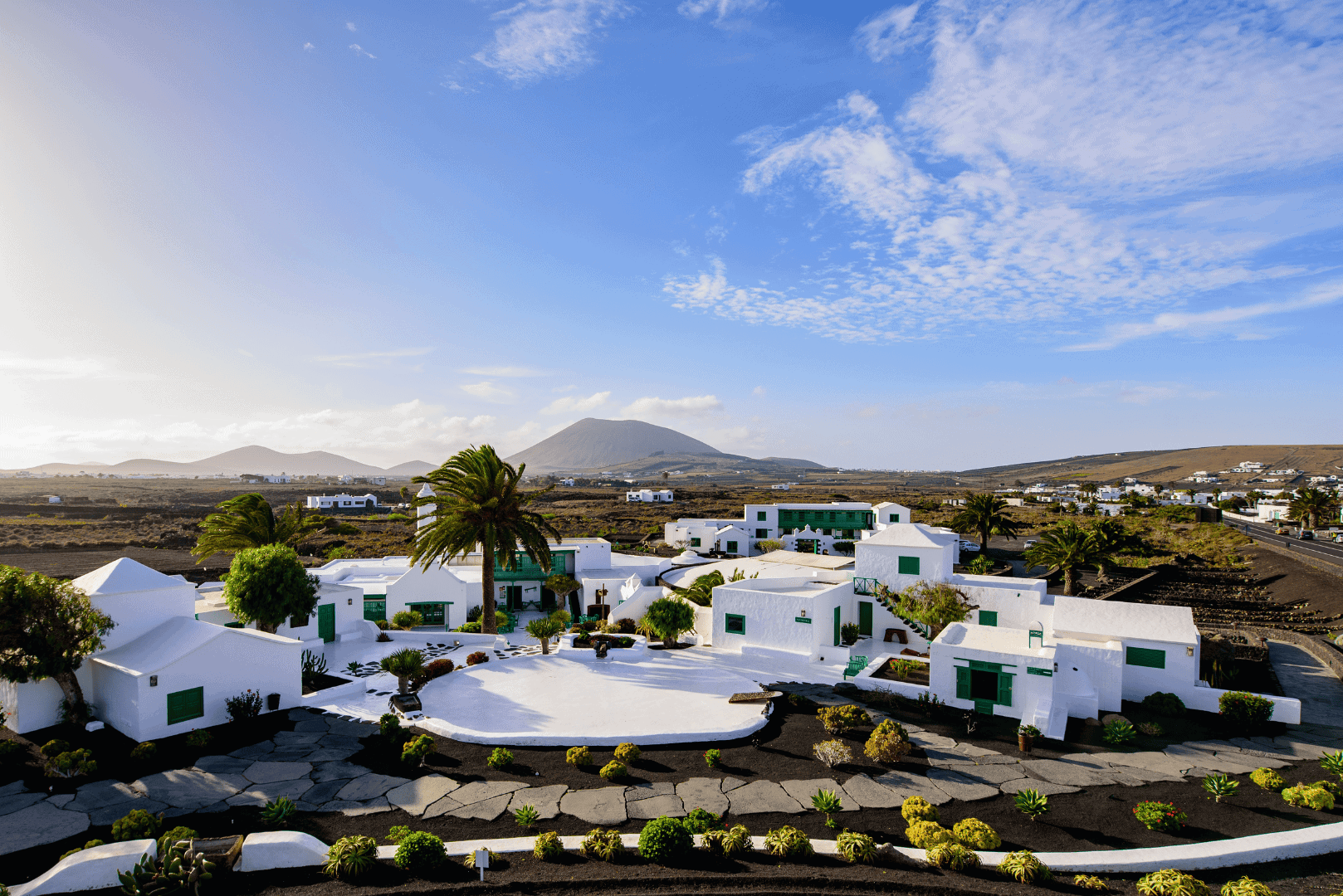
Casa Museo del Campesino
Casa Museo del Campesino
Free entrance
Opening Hours: 10:00 AM – 06:00 PM
Restaurant: 12:00 AM– 04:00 PM
Ctra. Arrecife a Tinajo, 8, 35559 Mozaga, Lanzarote
Discover Casa-Museo del Campesino: A Tribute to Lanzarote’s Tradition and Culture
Located in the geographical center of Lanzarote, in the municipality of San Bartolomé, the Casa-Museo del Campesino is César Manrique’s tribute to the farmers of the island, who faced the most challenging conditions to bring life to the land.
The Casa-Museo del Campesino offers a journey through traditional architecture, agriculture, crafts, and gastronomy, and is completed by the Monumento a la Fecundidad (Monument to Fertility), an avant-garde work where Manrique paid his personal homage.

CASA-MUSEO DEL CAMPESINO RESTAURANT
The restaurant offers a tasting of traditional dishes and flavors from the island’s cuisine, such as millet broth, goat stew, octopus with green mojo, and the famous Canarian wreckfish stew, all prepared with fresh, local market ingredients and paired with the largest selection of wines from the Lanzarote Designation of Origin.
For cheese lovers, we offer a carefully selected variety of fresh, semi-cured, and cured Lanzarote cheeses. These handcrafted cheeses are primarily made from goat’s milk, with exquisite blends that also include sheep’s and cow’s milk. Undoubtedly, a delight for the senses and the perfect souvenir.
Open
Everyday from 12:00 to 16:00 h.
What to see
Tour of La Casa-Museo del Campesino
Inspired by the vision of artist César Manrique, La Casa-Museo del Campesino offers an immersion into the popular culture of Lanzarote. It presents a journey through traditional architecture, agriculture, crafts, and cuisine, allowing visitors to appreciate the beauty of an island shaped by adversity, where its people have forged a unique way of life.
Unique Architecture
Monumento a la Fecundidad
The Path (Camel Saddles and Tools)
Plaza de los Artesanos (Artisans’ Square)
What to do
The masters located in La Plaza de los Artesanos strive to preserve and promote authentic local craftsmanship by offering workshops and exhibiting their pieces for sale.
Visit Time
Approximately 50 minutes.
Relax with Our Service
External food or beverages are not allowed so you can fully enjoy the services offered at the Casa Museo restaurant.
Attire
To ensure your comfort during your visit, especially in the cooler months from October to May, we suggest wearing warm clothing. This way, you can fully enjoy your experience at any time of the year!
Photography
Personal photography is allowed throughout our facilities, so feel free to capture your visit!
Drone use is not permitted. Thank you for your understanding and cooperation.
Accessibility
Mostly adapted, although access to the Monument of Fertility is not.
Families
A recommended spot for the whole family.
Pets
Pets are not allowed, except for assistance dogs as per Law 3/2017 of April 26th, on assistance dogs for people with disabilities in the Canary Islands.
info@centrosturisticos.com
901 200 300
Braiding and Millinery
Artisan: Yolanda Benedicta Torres Moreno
The natural palm heart comes from the central leaves of palm trees (traditionally cut on the day of San Juan), dried in the sun and manually laminated. The technique of traditional braiding with several strands, later combined with others, has been used in the islands over the years for multiple uses, such as the creation of hats, carpets, and more.
Her products are made with artisan techniques and, for the most part, with sustainable materials such as palm heart, palm, porcelain, or ceramics, among others. She creates a variety of items, from hats and headdresses to earrings or brooches.
Email: yolandatorresmoreno@gmail.com
Tel: +34 639182022
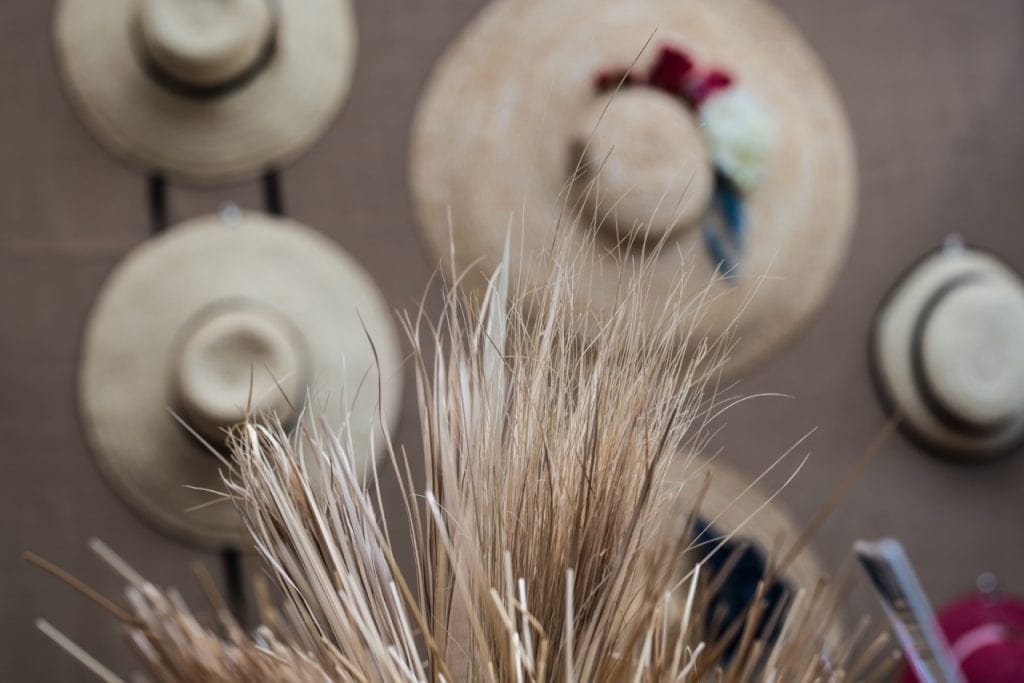
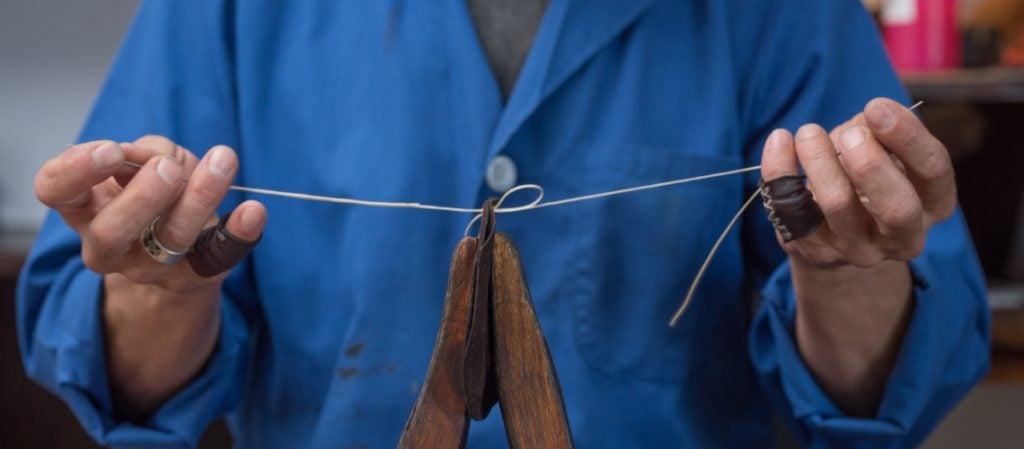
Leather workshop
Artisan: Víctor Socas
Leather is a very resistant material traditionally used in the Canary Islands to manufacture different utensils.
His products are natural, vegetable, and chrome tanned, with which he creates articles for pets and fashion accessories such as backpacks, bags, or shoes.
Email: victorsocasoaz@gmail.com
Tel: +34 649154570
Cochineal Dyeing Workshop
Artisan: Conchi García
The grana cochineal is a parasitic insect of the cactus from which a natural red or crimson-colored extract is obtained. When mixed with acid or alkaline substances, it produces other reddish and purple tones.
During her professional development as an artisan, Conchi García has always been interested in traditional techniques, focusing on both the smooth loom and the traditional dyeing techniques with cochineal, starting with dyeing wool and silk scarves.
Email: conchigarciarodriguez56@gmail.com
Tel: +34 636198702
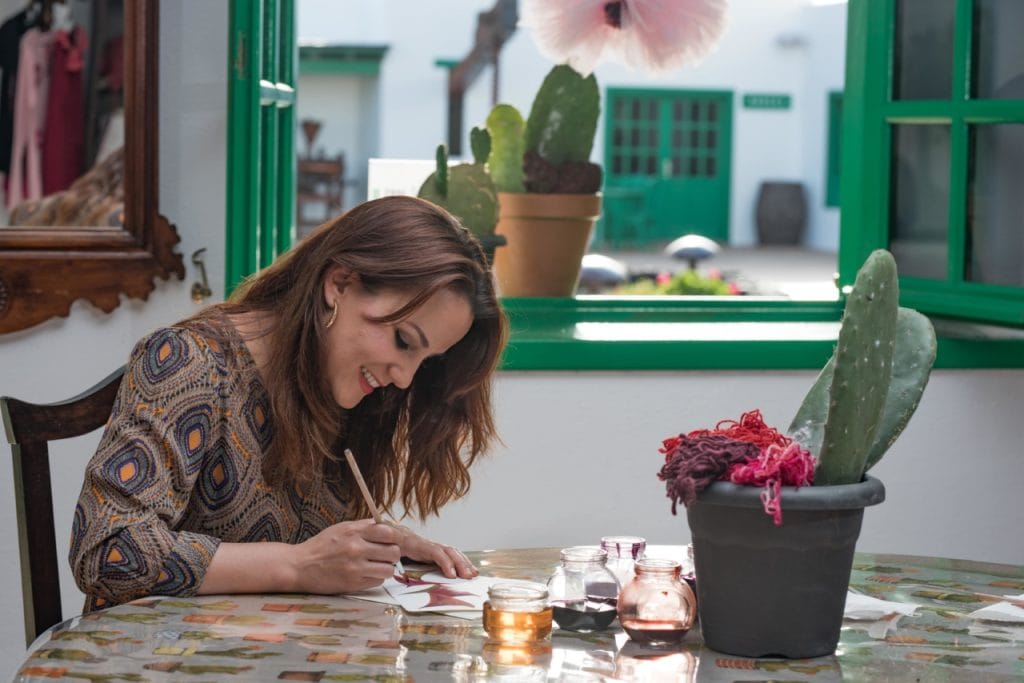
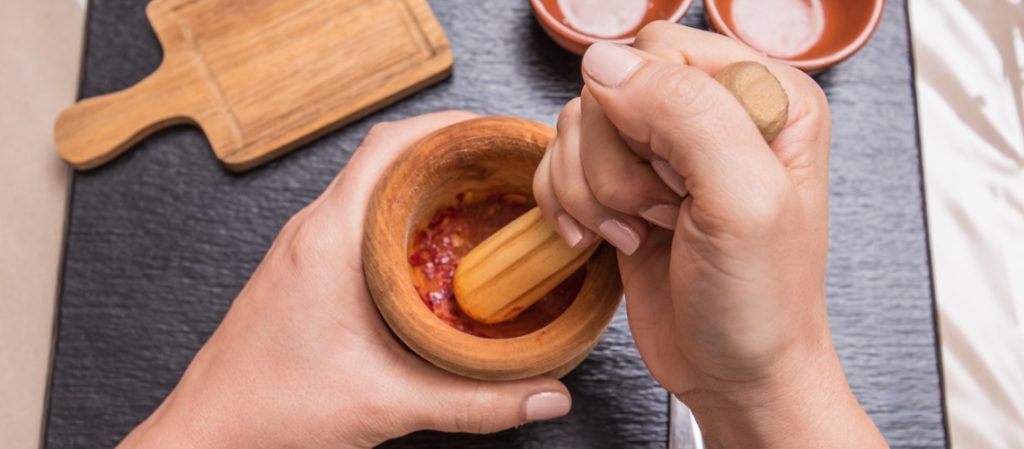
Gofio and Mojo Workshop (toasted meal and local sauce)
Artisan: Estefanía González
Discover how to prepare the most famous of the Canarian sauces, mojo picón, or how to make a traditional pella de gofio, a staple of Canarian gastronomy that you can taste and take the recipe home.
Email: experimentalanzarote@gmail.com
Tel: +34 639123940







